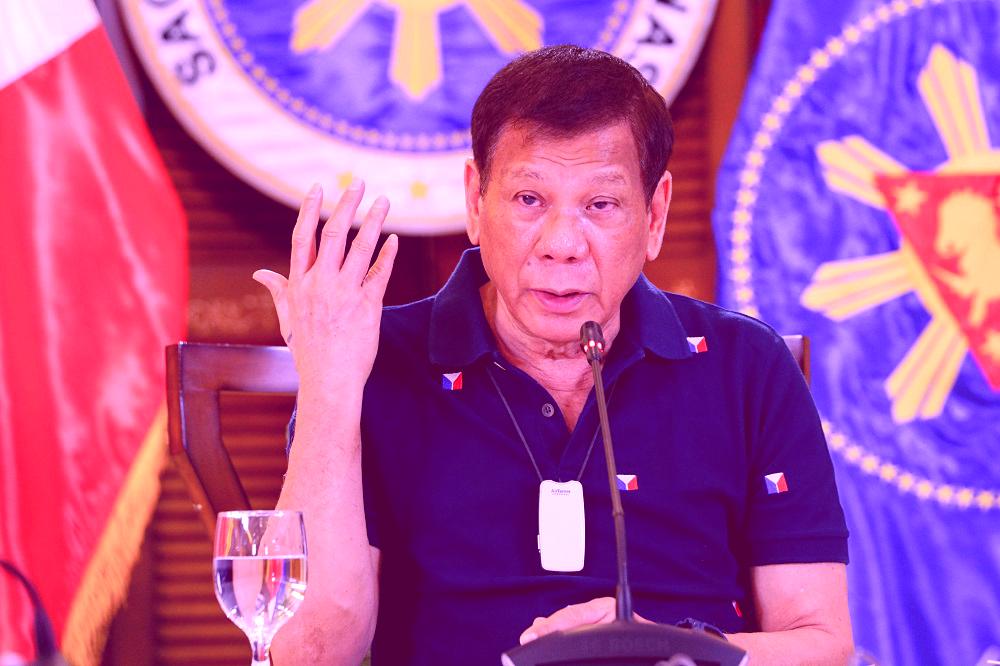Just line in past weeks, the people are expecting President Rodrigo Duterte to make the address the nation on Thursday night, which happens to be June 11, on the eve of the nation’s commemoration of independence day. Or maybe his pre-recorded speech will be broadcast the following morning. But this is not on the schedule, according to his office.
With Duterte’s supposed June 11 speech, the people awaits news if Duterte, currently still in Davao, has signed the Anti-Terrorism Bill into law, also on the eve of the mañanita protest against the proposed law.
On June 9, Senate President Vicente “Tito” Sotto III revealed that he and House Speaker Alan Peter Cayetano has signed the bill and it was transmitted to Malacañang for the signature of the President. Sotto informed the public that a copy was sent through email and received by Executive Secretary Salvador Medialdea and the Presidential Legislative Liaison Office on the morning of June 9.
Until late night on June 11, two days after transmittal, there is no news about the signing of the Anti-Terrorism Bill. Presidential Spokesperson Atty. Harry Roque, who fashioned himself a human rights lawyer before this mouthpiece stint and had contested in the Supreme Court the Human Security Act of 2007 that is repealed by this bill, said that the public interest on the bill will make the president review the provisions of the bill even more closer. Duterte, however, certified the bill urgent on June 1 which gave Congress the authority to fast-track its approval amid the pandemic, and leaving unlegislated the measure for COVID-19 response.
Also on June 9, Duterte is set to meet with the Inter-Agency Task Force on Emerging Infectious Diseases (IATF) in his hometown Davao City on June 11 to decide on quarantine protocols for the June 16-30 period. His pre-recorded public addresses usually happens during this meeting.
The president is also supposed to address the public on June 11, at least four days before the general community quarantine (GCQ) in Metro Manila and other areas ends on June 15, so people should be given ample time to prepare if GCQ stays or if it will be downgraded to modified GCQ. Worse is if it’s upgraded to modified enhanced community quarantine (MECQ) because that’s a lockdown all over again.
But who’s to know what since the government has been changing quarantine protocols and definitions but cases only steadily increase, with confirmed cases at 24,175 and positive cases nearing 30,000 (the difference being the number the government has yet to validate), already at 29,928 as of June 9.
This should have been a pressing reason for the president to address the nation today and report on the 7th week of his additional powers for COVID-19 response as contained in the nearly-expired Bayanihan to Heal as One Act. They should give ample time for people to prepare and adjust for the next quarantine protocols.
Roque said on June 11 that the IATF has made its recommendations, but the president has the final say and will address the nation on June 15 instead. Why delay?
There are three possible reasons why the delay of Duterte’s weekly speech.
The first reason is the “mañanita” of the people tomorrow, June 12, the commemoration of the Philippine independence. If Malacañang will announce to the public that Duterte had already signed the anti-terrorism bill, it will trigger more people to join the mañanita in UP Diliman led by the Movement Against Tyranny. His minions have instead issued warnings against people who will join the protest, even if there is no law prohibiting protests – as a constitutional right – and also no law that said protesters should be arrested.
The second reason is the plan to wait of the people’s anger to subside. As did many admnistrations in the past, they douse the people’s anger through delays, distractions of over equally enraging controversies and coming out with scapegoats in other issues to be their foil. Malacañang is aware of the fact that the Anti-Terrorism Bill has drawn people from all sectors and quarters to openly express their opposition. To let the anger of the people to go down, Malacañang has no choice but to delay the announcement. Duterte might even wait out the 30 days and then the bill will pass into law—unless he vetoes it.
The third reason is Duterte would really wait out the 30 days and then the bill will pass into law to delay any legal challenges to the law.
To delay the speech on June 11 or even in the morning of June 12 (as it happened many times that the pre-recorded public address was broadcast the morning after) where they should inform the public of the government’s COVID-19 response plans is downright callous.
Last week, in Duterte’s speech we were treated to the president demonstrating steps on using rubbing alcohol on our hands and discussing the variety of face masks instead of concrete plans. He avoided any mention of the anti-terrorism bill that by that time was approved in the third and final reading and only awaiting his signature. To delay the speech because he is averting another political backlash when there is an urgent need to communicate the next quarantine protocols before the current ones end on June 15 is shameless.
Whatever the reason why he delayed his speech and the announcement of his signing of the Anti-Terrorism Bill, it cannot prevent the people to express their anger either on the streets. The biggest chance to fight this proposed law and to fight the culmination of Duterte’s full-pledged, legalized fascist rule is on the streets. The anti-terrorism bill should be the last straw. Enough is enough.
The protesters will carry on their protests even if the anti-terrorism bill will have been signed by Duterte. They will continue to fight for freedom and democracy because we cannot live in a “new normal” that means a legal permanent martial law and dictatorial rule of Duterte.


































